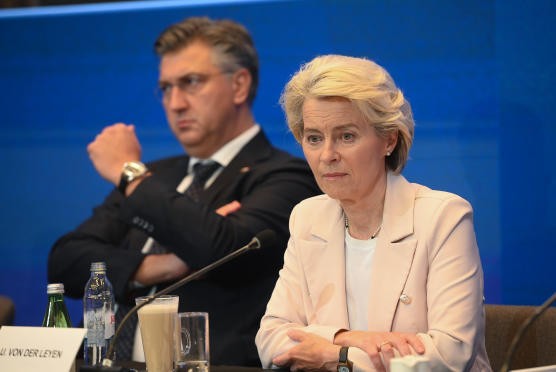Many heads of state and government of the European Union have called for a “regulatory pause” on climate and the environment. They are worried about the economic and social consequences of the measures intended to lead the Twenty-Seven to carbon neutrality
You can share an article by clicking on the share icons at the top right of it.
The total or partial reproduction of an article, without the prior written authorization of Le Monde, is strictly prohibited.
For more information, consult our general conditions of sale.
For any authorization request, contact syndication@lemonde.fr.
As a subscriber, you can gift up to five items per month to one of your loved ones using the “Gift an item” feature.
For two years, Europeans have undertaken a veritable legislative marathon to establish the “Green Deal” and put themselves in a position to respect the Paris agreement. In record time, they adopted thirty-two pieces of legislation – from the end of the thermal engine in 2035 to the establishment of a carbon tax at borders – which should allow them to reduce their CO2 emissions by 55% by to 2030 compared to 1990, and put them on the path to carbon neutrality in 2050. They still have, to respect their roadmap, a good forty texts to complete; they concern the environment more than the fight against global warming.
Of course, certain Central and Eastern European countries with very carbon-intensive economies, such as Poland or Hungary, have continually expressed their reluctance, arguing that they could not do as much as their Western partners. But until recently, the European Green Deal continued on its way year after year. However, for several weeks now, this march has seemed more hesitant and its pace has been called into question.
Source: Le Monde



Recent Comments